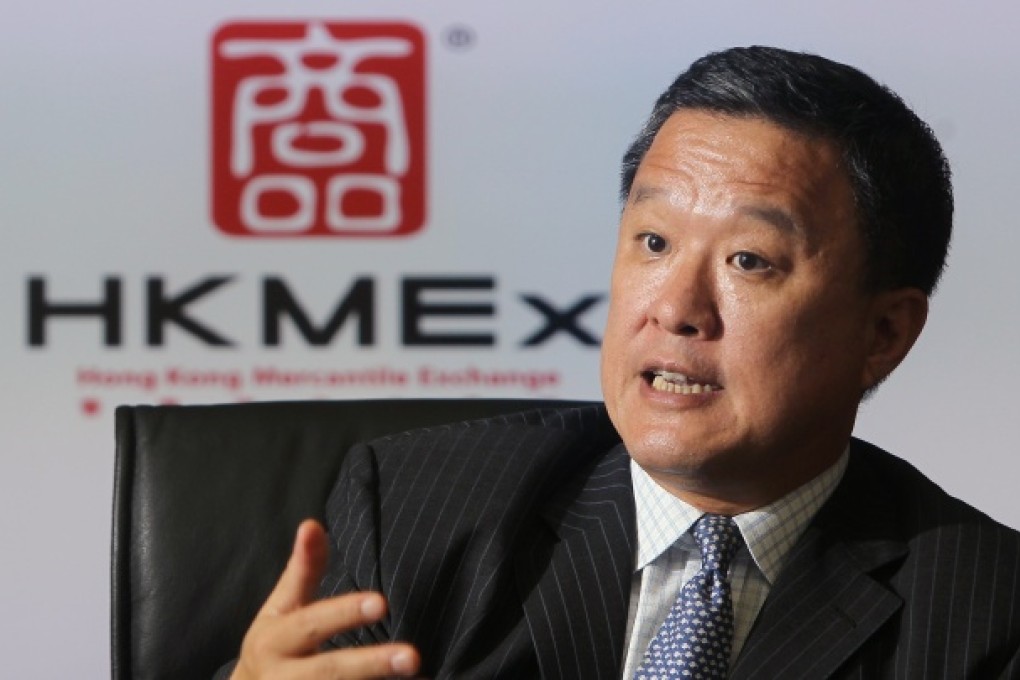Hong Kong Mercantile Exchange fails amid dearth of gold futures trading
Market players say Hong Kong Mercantile Exchange unable to compete with more established rivals, with trading in its gold futures very thin

The Hong Kong Mercantile Exchange's failure to come up with a viable gold futures business proved to be its undoing as it wilted under competition from more established domestic and international exchanges, market participants say.
The HKMEx, launched in 2011 after two years of delay, struggled to achieve the trading volumes that would justify its operating expenses, it said on Saturday.
Originally designed to be a platform for fuel oil futures, the HKMEx ended up being an exchange for gold contracts.
HKMEx chairman Barry Cheung Chun-yuen last night denied media reports that said a businessman who had supported Chief Executive Leung Chun-ying had lent him more than HK$100 million.
Cheung also said an HK$8 million loan in December 2010 from former legislator Chim Pui-chung to launch HKMEx had been returned in January 2011.
"It came as no surprise that HKMEx had to stop operating as gold is a very international product traded in a competitive environment," said Joseph Tong Tang, an executive director of Sun Hung Kai Financial, which trades gold for its clients and is a member of the Chinese Gold & Silver Exchange Society but not the HKMEx.
"The Chinese Gold & Silver Exchange offers both cash and futures products and has much bigger liquidity, while the HKMEx only offers futures."